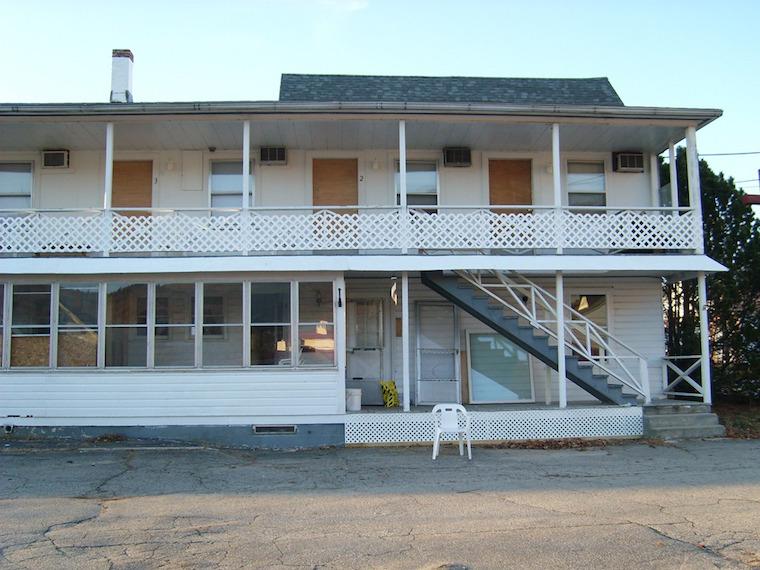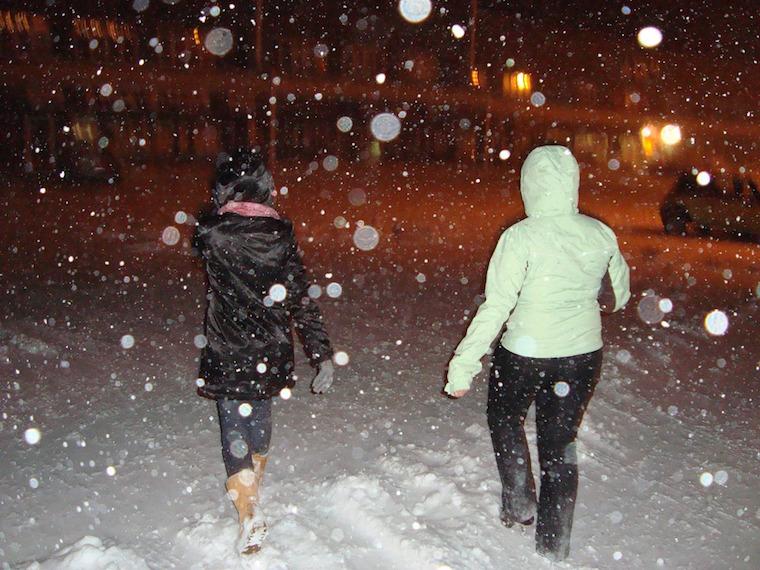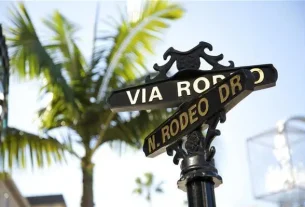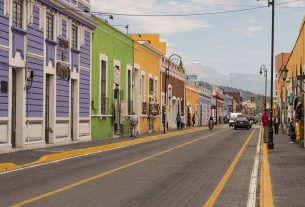You may have noticed that Obama’s land became a topic on this blog last week. It’s time to tell you what it was like living there for four months during a Work and Travel exchange in the United States. In the next post in the series I’ll tell you what it was like to work at McDonald’s.
In 2008 I was in my penultimate year of college and a little tired of everyday life (it’s incredible how routine always tires me and I’m itching to travel). At that moment, a friend came up with the idea of doing the Work and Travel exchange in the United States. We visited some agencies, chose one and informed our parents of our intentions. Fortunately, my mother supported me in this endeavor. I had friends and acquaintances who had done the same type of exchange the previous year and really enjoyed it.
What is Work and Travel?
Work and Travel is an exchange legalized by the US government that allows young university students, aged 18 to 28, to spend their college holidays working in the USA. There is even a specific type of visa for this, which is the J1. This visa allows you to work for three months and gives you a month of “grace period”, that is, a month to spend everything you saved working.
How much does the exchange cost?
To go, there are two ways: the first is to look for an agency here in Brazil, which will make contact with the Sponsor in the United States. O Sponsor It’s like a job agency that will find you a place for the exchange period. The agency here in Brazil takes care of the bureaucratic part, which is all the paperwork, insurance, tickets and help with obtaining a visa. The other way is to hire the agency just to solve your problems, while you get a position in the USA on your own. I looked online and the price currently varies from US$2000 to US$2500 to do this type of exchange.
It is possible to pay for your course abroad quickly, conveniently and securely. Best of all, saving! Online Remittance is the fastest and cheapest way to send money both to individual accounts abroad and to pay for courses abroad.
When to do it?
The working period is usually from November to March, but this is agreed with the company. I traveled at the end of November, started working on December 1, 2008 and returned to Brazil in mid-April 2009. But it’s important to look at everything well beforehand. The part of finding the job (either yourself or the agency) is time-consuming, not to mention that it is cheaper to buy plane tickets in advance. I started planning the exchange in July.
How much money can you earn while working and traveling?
It varies depending on where you are going to work and your disposition and luck. Jobs generally pay $5 to $11 an hour. My job at McDonalds paid $7.25 an hour and $10.50 an overtime. I didn’t get a second job because I went right when the 2008 crisis hit. Furthermore, I was in a very small city, with around a thousand inhabitants. My friends who went in previous years got second and even third jobs and, soon, made more money than me (in the best expression in English: make money). However, with the current crisis, I’m not sure what the situation is like for the people who went last year and are doing this year.
I was paid weekly, I only paid the rent, which was deducted directly from my paycheck. I was then earning, net, between 250 and 300 dollars a week. I spent it on food and trips, but saved most of it for the trip I wanted to take at the end.

The house where I lived
Can you choose the city?
Well, it depends. I made suggestions of where I’d like to go: east coast, near New York. It worked, I went to New Hampshire, in Lincoln, a city with a mountain and ski slope that is about two hours by bus from Boston and about five from New York. There are people who, unlike me, want to escape the snow at all costs and prefer to go south. That depends on each person. What you can’t choose (unless you arrange it yourself) is whether to stay in a big city or the exact city you want to go to. In this program, most jobs are for medium or small cities, because that is where job offers arise during the holiday season.
Can I choose who I will work with?
More or less the same situation as above. You can even suggest it, but it will depend on your level of English and your luck. I really wanted a job where I could speak English, after all one of the reasons for going there was to train the language. My English was between intermediate and advanced and I got a job where I was at the register all day, always talking to people, but I didn’t get tips. There are people who will be operators of lift At the ski resort, there are people who are waiters, hotel maids, store salespeople. In short, this is what we call underemployment.
The difference is that these works are seen with more “dignity” there than they are here. It is common to work with young students who are there to save money or university students who need to support themselves. There are also fathers and mothers who need to support their children. Anyway, it’s not an inferior service (at least in my experience, I didn’t think so), but it’s certainly heavy and tiring.

Nevaaaasca
What troubles can await me?
The first big problem is that you can’t get a visa. This could happen because your agency didn’t guide you properly, because you lack documents proving your connection here or even because the consulate staff thinks your English isn’t good enough (it happened to a colleague who was getting his visa with me). Everything worked out for me. It was quick and easy, the agency helped me organize all the documents and the interview was in English, but very calm.
Another thing that could happen is that you arrive in the United States and discover that the job you were promised isn’t going to happen or that the house you were going to live in doesn’t exist. This happened to someone who went in my group and to a friend who went the year before. At these times, unfortunately, there is no point in relying on the agency here – yes, it is your rights, but from the impression I got, some agencies don’t care much about exchange students after they leave Brazil. That’s why it’s important to do a lot of research before choosing an agency. If the worst happens and you don’t really get any help from Brazil, the solution is to try to find another job (or house) on your own and save your exchange. With the crisis, this risk worsens. Therefore, it is best to ask your agency before leaving Brazil.

The third problem that could happen is that you really hate your job and want to change. In this case, the responsibility is yours alone. You can try talking to your boss and see if you can change your position (I think it’s difficult, but it works). Now if the problem is the boss himself, you can try to change jobs, but be very careful about the contract you signed – your boss could get you deported for abandoning the agreed job.
In the end, is it worth it?
Oh, it’s worth it. It was one of the best experiences of my life. I was 20 years old, I was living away from my parents for the first time, in a different country, with another culture and still working on things that I never imagined myself doing before. It’s worth it for the personal growth, for the spirit of adaptation, for the fact that you realize that the world is much bigger and more interesting than you imagined and of course, for English and for meeting so many different people. I recommend it to anyone who wants to and has the means to get the money to go. Not to mention that you can travel around the United States for a month. This was my first backpacking trip… I’ll tell you more in the future.
Attention: It is not a good idea to travel to the United States without international health insurance, as hospital costs there are very high. Read here how to find cost-effective insurance (and with a discount!)
Work and Travel x Work Exchange: qual a diferença?
Another way to do a work exchange in the United States is Work Exchange programs. At first, they became popular among backpackers who were looking for a way to make their trip cheaper, but today they are much more than that. Cheap and flexible, they have also become a way to transform any holiday trip into a cultural exchange, an opportunity to learn new skills – like a language – and have unforgettable experiences.
Just like with Work and Travel, with Work Exchange you will have work experience in the United States, but instead of being considered a full-time worker and receiving a real salary, with Work Exchange you make a trade: you dedicate about four hours per day performing some activity and receives free accommodation and, in some cases, other benefits, such as meals.
The advantage of Work Exchange is that it is more diverse and inclusive: there is no age limit and you can commit for as long as you want (programs range from a week to several months). Furthermore, it is not necessary to be a student or travel with a specific visa: you can use a tourist visa.
In addition to the traditional “work in a hostel in exchange for accommodation”, nowadays Work Exchange programs have many other activities: you can work with ecological, social impact or educational projects, teaching languages, as a content creator, social media , photographer or video maker, as well as organic farms and even as a yoga instructor. The possibilities are limitless!
There are several websites that offer this type of program. At Worldpackers, the blog’s partner, membership costs US$49 per year or US$59 for a couple or pair of friends, and you can participate in as many programs as you want during the period.
The price includes insurance that helps you find another activity if you encounter different conditions than agreed upon arrival. And the website is Brazilian, so you have 24-hour support in Portuguese.
360meridianos readers get a $10 discount on membership, just use the coupon code 360MERIDIANOS at the time of purchase. Click here to find out more about the program.
Sign up for our newsletter

Sign up for our newsletter and stay up to date with exclusive news
that can transform your routine!
Warning: Undefined array key "title" in /home/storelat/public_html/wp-content/plugins/link-whisper-premium/templates/frontend/related-posts.php on line 12
Warning: Undefined array key "title_tag" in /home/storelat/public_html/wp-content/plugins/link-whisper-premium/templates/frontend/related-posts.php on line 13




